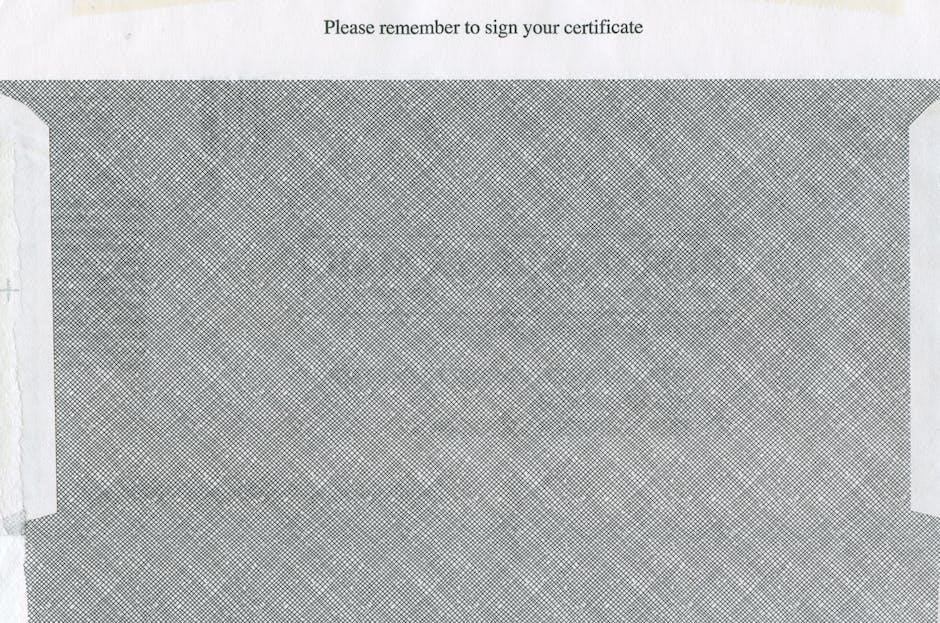The Curriculum and Instruction Certification Online equips educators with advanced skills in curriculum design and instructional strategies. This program focuses on enhancing teaching methodologies to improve student learning outcomes, offering flexibility and accessibility for modern educators.
Overview of the Certification Program
The Curriculum and Instruction Certification Online is a structured program designed for educators seeking to enhance their expertise in curriculum development and instructional techniques. It offers a blend of core courses and specializations, allowing professionals to deepen their understanding of educational strategies and technologies. The program emphasizes practical application, enabling participants to implement innovative methods in diverse learning environments. With a focus on flexibility, it accommodates various career goals, from curriculum design to instructional leadership, ensuring educators can apply their knowledge effectively in real-world settings.
Importance of Online Learning in Curriculum and Instruction
Online learning in Curriculum and Instruction certification offers unparalleled flexibility and accessibility, enabling educators to enhance their skills without interrupting their professional commitments. It provides opportunities to explore innovative teaching methodologies and stay updated on best practices in education. Through virtual platforms, participants can engage with diverse perspectives and apply learned strategies to real-world challenges. This format ensures that educators can balance their careers while advancing their expertise, ultimately benefiting both their professional growth and the students they serve.
What is Curriculum and Instruction Certification?
Curriculum and Instruction Certification is a professional qualification focusing on curriculum design, instructional strategies, and teaching methodologies to enhance educational effectiveness and improve student learning outcomes.
Definition and Scope of the Certification
The Curriculum and Instruction Certification Online is a specialized program designed to enhance educators’ expertise in curriculum design and instructional strategies. It focuses on advancing teaching methodologies to improve student learning outcomes. The certification covers areas such as curriculum development, instructional techniques, and the integration of technology in education. It is tailored for educators seeking to improve their skills and stay updated with modern educational practices. The program emphasizes flexibility, allowing professionals to balance their careers while gaining advanced knowledge in curriculum and instruction.

Key Differences Between Curriculum and Instruction
Curriculum refers to the content and structure of what students learn, focusing on goals, subjects, and activities. Instruction, however, involves the methods and strategies teachers use to deliver this content. While curriculum defines the “what” of education, instruction addresses the “how.” They are interconnected but distinct, with curriculum providing the framework and instruction bringing it to life through effective teaching practices. Understanding their differences is crucial for educators to design and implement meaningful learning experiences.

Benefits of Pursuing Curriculum and Instruction Certification Online
Earning a Curriculum and Instruction certification online enhances teaching skills, offers flexible learning, and expands career opportunities. It equips educators with modern methodologies and leadership abilities.
Flexibility and Accessibility of Online Programs

Online curriculum and instruction certification programs offer unmatched flexibility, allowing educators to balance professional and personal commitments. Designed for working professionals, these programs provide asynchronous learning options, enabling students to complete coursework on their own schedule. With 24/7 access to course materials, participants can learn at their own pace, reducing the need for commuting and rigid timetables. This accessibility ensures that educators worldwide can enhance their skills without disrupting their current roles, making it an ideal choice for those seeking career advancement while maintaining their responsibilities.
Enhanced Career Opportunities in Education
Earning a Curriculum and Instruction Certification Online significantly enhances career opportunities in education; Graduates can pursue roles such as curriculum developer, instructional coach, or educational consultant. The certification also prepares educators for leadership positions, including department chairs or curriculum specialists. Additionally, it equips professionals with specialized skills in curriculum design and instructional strategies, making them more competitive in the job market. This certification is particularly valuable for those aiming to advance in educational leadership or specialize in areas like gifted education or special needs instruction, opening doors to higher-paying and more influential roles in the education sector.

Curriculum Details for Online Certification Programs
The curriculum includes core courses in curriculum design, instructional strategies, and educational technology, providing foundational knowledge and practical applications for effective teaching methods and leadership roles;
Core Courses in Curriculum and Instruction
Core courses in Curriculum and Instruction certification programs typically include studies in curriculum design and development, instructional strategies, and educational assessment. Students explore theories of learning, classroom management techniques, and the integration of technology in education. Courses often emphasize adapting curricula to diverse learner needs, including special education and multilingual classrooms. Additional topics may cover educational research, data-driven instruction, and professional development. These courses provide a comprehensive foundation for educators to create engaging, effective, and inclusive learning experiences. They are designed to prepare professionals for modern educational challenges and opportunities.
Specializations and Electives Available
Curriculum and Instruction certification programs often offer specializations such as Reading Education, Special Education, or Educational Technology. Electives may include courses on diverse learners, global education, or STEM integration. These options allow educators to tailor their expertise to specific student populations or teaching environments. Specializations and electives enhance the program’s flexibility, enabling professionals to address contemporary educational challenges. They also provide opportunities to explore innovative teaching methods and technologies, ensuring a well-rounded and adaptable skill set for modern educators.

Admission Requirements and Process
Admission typically requires a bachelor’s degree in Education or a related field, with a minimum GPA of 3.0. Applicants must submit official transcripts, letters of recommendation, and sometimes a teaching certificate.
Prerequisites for Enrollment
Prospective students typically need a Bachelor’s degree in Education or a related field, with a minimum GPA of 3.0. A valid teaching certificate may be required, depending on the program. Some institutions may also ask for letters of recommendation or a personal statement. Additional prerequisites could include foundational courses in curriculum design or instructional strategies. Ensuring applicants meet these requirements helps maintain program quality and prepares them for advanced studies in curriculum and instruction.
Application Process and Required Documents
The application process typically requires submitting official transcripts, a valid teaching certificate, and letters of recommendation. Some programs may ask for a personal statement outlining professional goals; Out-of-state applicants must verify licensure requirements with their state education agency. Additional documents, such as proof of completed credit hours in specific courses, may be needed. The process is designed to ensure candidates meet the program’s academic and professional standards, preparing them for advanced roles in curriculum and instruction.
Program Structure and Duration
Online Learning Tools and Platforms
Programs typically range from 12 to 18 credit hours, structured into 8–12 courses, each lasting 6–8 weeks, offering a flexible yet rigorous learning experience for educators.

Online learning platforms like Canvas, Moodle, and Blackboard provide accessible tools for curriculum and instruction certification. These platforms offer interactive features such as video conferencing, discussion forums, and live sessions. Multimedia resources, including videos and simulations, enhance learning experiences. Tools like Zoom and Microsoft Teams facilitate real-time communication, while digital libraries and cloud storage support flexible access to course materials. These technologies ensure engaging and effective online education, catering to diverse learning needs and preferences.
Program Duration and Credit Hours
Online certification programs in Curriculum and Instruction typically range from 12 to 18 credit hours, designed to be completed in 6 to 12 months. The duration varies based on course load and institution, offering flexibility for working professionals. Some programs allow part-time enrollment, while others offer accelerated tracks for faster completion. Credit hours focus on core curriculum courses, ensuring comprehensive skill development in instructional strategies and curriculum design, aligning with professional goals and educational advancement opportunities.
Career Opportunities After Certification
Earning a Curriculum and Instruction Certification Online opens doors to roles like instructional coach, curriculum developer, and education consultant. It also enhances opportunities for leadership in education.
Job Roles in Curriculum Development and Instruction
Graduates with a Curriculum and Instruction Certification Online can pursue roles like curriculum specialists, instructional coaches, or education consultants. These professionals design curricula, train educators, and implement innovative teaching strategies. They also assess educational programs and align them with learning standards. Additionally, roles in educational leadership, such as curriculum coordinators or instructional designers, are common. These positions focus on improving student outcomes by enhancing teaching methods and materials, ensuring a holistic approach to education.
Advancement in Educational Leadership
Earning a Curriculum and Instruction Certification Online prepares educators for leadership roles in education. This certification equips professionals with advanced skills in curriculum design and instructional strategies, enabling them to transition into roles like curriculum coordinators or department heads. It also fosters expertise in educational policy and program development, making graduates ideal candidates for administrative positions. The certification often serves as a stepping stone for educators aiming to move into leadership roles, where they can shape educational programs and policies to drive student success and institutional improvement.

Skills and Competencies Gained
Educators gain expertise in instructional strategies, curriculum design, and assessment methods. The certification enhances their ability to create engaging lesson plans and implement effective teaching practices.
Instructional Strategies and Best Practices
Earning a Curriculum and Instruction Certification Online equips educators with innovative instructional strategies and best practices to enhance student engagement and learning outcomes. The program emphasizes evidence-based methodologies, such as differentiated instruction, technology integration, and data-driven decision-making. Participants learn to design curriculum-aligned lessons, assess student progress effectively, and foster inclusive learning environments. These strategies are tailored to meet diverse student needs, ensuring educators are well-prepared to address modern classroom challenges and promote academic excellence. The certification also highlights the importance of continuous professional growth and adaptability in education.
Curriculum Design and Implementation
Earning a Curriculum and Instruction Certification Online empowers educators to design and implement effective curricula tailored to diverse learning needs. The program provides systematic knowledge and skills to develop curriculum frameworks, align educational goals with instructional strategies, and create engaging learning experiences. Educators learn to adapt curricula to meet modern educational demands, ensuring comprehensive and inclusive instruction. This certification emphasizes the practical application of curriculum design principles, enabling educators to enhance student outcomes and foster a dynamic learning environment.
Pursuing a Curriculum and Instruction Certification Online empowers educators to transform teaching practices, fostering student success and educational excellence through advanced skills and career advancement opportunities.
Final Thoughts on the Certification Program
The Curriculum and Instruction Certification Online is a transformative program that equips educators with advanced skills in curriculum design, instructional strategies, and leadership. It fosters innovation in teaching, enabling educators to create engaging and effective learning experiences. By completing this certification, professionals gain the expertise to address diverse student needs and stay ahead in their careers. The program’s flexibility and focus on practical application make it an invaluable resource for educators seeking to enhance their impact and contribute meaningfully to the field of education.
Encouragement to Pursue the Certification
Pursuing the Curriculum and Instruction Certification Online is a wise investment in your educational career. It enhances your teaching skills, broadens your knowledge, and opens doors to leadership roles. The program’s flexibility allows you to balance professional and personal life while advancing your expertise. By enrolling, you gain the tools to create impactful learning experiences and contribute meaningfully to the field of education. This certification is a step toward becoming a more effective and innovative educator, empowering you to make a lasting difference in students’ lives and your own professional growth.

